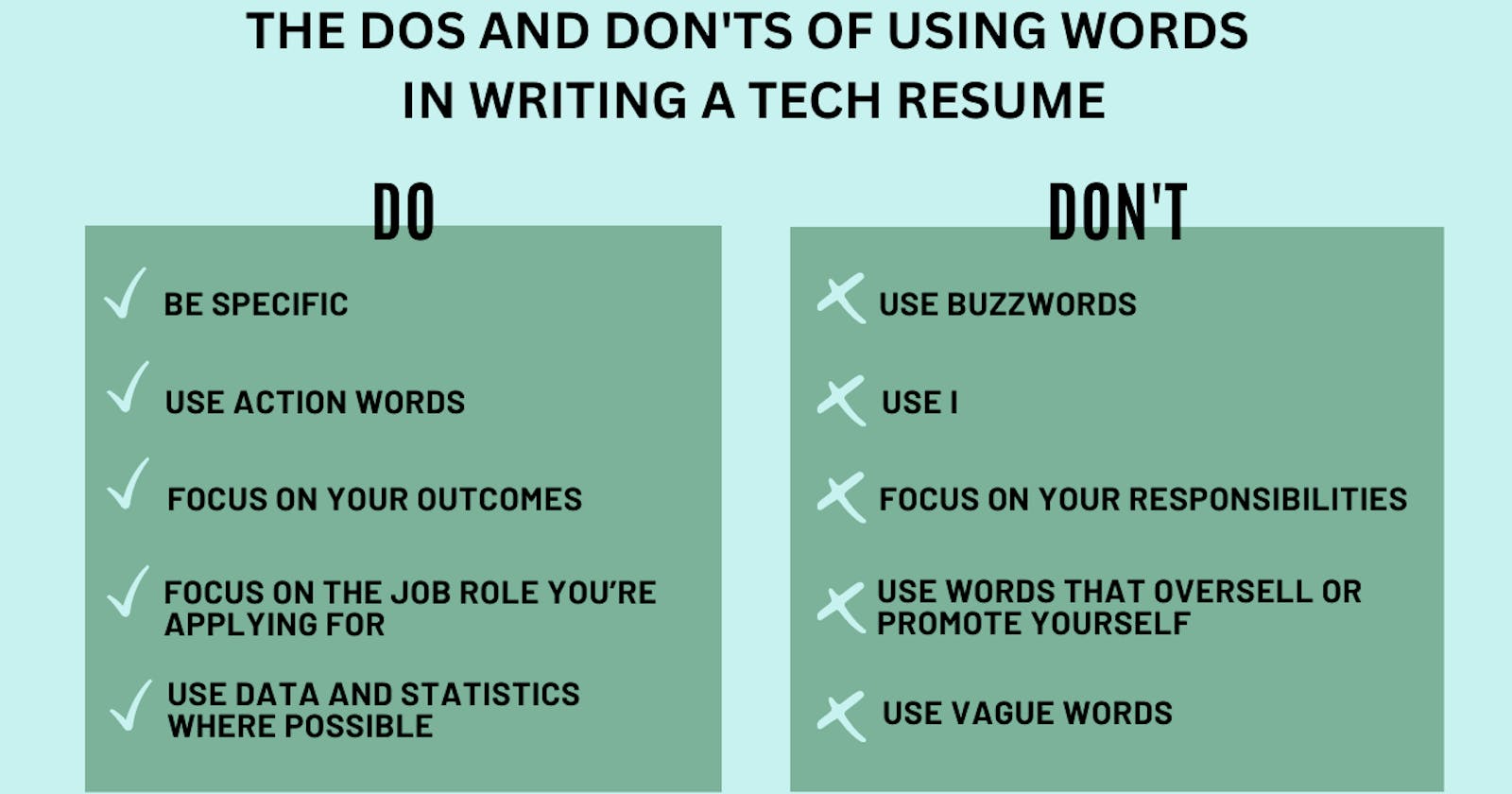How To Use Words In A Resume That People Will Read
The importance of word choice
When building a resume, content is key. The design and layout of your resume are important, but recruiters are primarily looking at your resume content. Understanding which words to use and how to phrase them effectively will go a long way toward landing you a job interview.
The Dos
Some tips for writing effective resume content include:
1. Be specific. What specific actions did you take, and what positive outcomes did you achieve? Instead of saying "Proficient in Microsoft Office," specify "Proficient in Excel, PowerPoint, and Word, with experience creating detailed spreadsheets and presentations."
2. Use action words. Use words that show you took action to achieve a positive result. Recruiters want to see that you are motivated and have initiative. Some action words include: achieved, managed, created, improved, resolved, etc.
3. Focus on your outcomes, not your responsibilities. When listing relevant work experience, state the positive outcomes that your direct actions had on the success of a project. You can use the following template to create your impact statements.
<action verb> <noun> from <data> in order to/which led to <impact>
For example, "Implemented a cost-saving initiative that reduced expenses by $50,000 annually."
4. Focus on the job role you’re applying for. If the job you’re applying for is a technical management role, list work experience which demonstrates your leadership and communication skills. Cater the work experience outcomes to the role you want to achieve. For example: "Managed a cross-functional team of 10 employees to successfully launch a new product, resulting in a 50% increase in sales."
5. Use data and statistics where possible. If you have tangible values, include them. For example, if you refactored a legacy codebase to be more modern and this led to a 35% reduction in the codebase size, state that. You can say “refactored Dojo legacy codebase into React, which led to a 35% reduction in the package size”.
When writing about your work experience, it’s important to use words that positively reflect the outcomes of your actions. Words like achieved, improved, trained, resolved, launched, and built indicate a positive outcome was achieved as a result of your actions. These words are also specific and allow you to focus on stating the impact you had.
The Don’ts
There are also some words or phrases you shouldn’t use to describe your work experience or skills.
Don’t use business or technology buzzwords to catch a recruiter’s eye. These words are often overused and don’t add value.
Secondly, omit words that oversell or promote yourself. While a resume is essentially an ad campaign for your career, you want to avoid using words or phrases which are too broad, such as go-getter, go-to person, and detail-oriented.
A few other examples of words and phrases you should omit from your resume include hard worker, think outside the box, assisted, utilized, worked on, and something. These can have a negative impact on your resume and may cause you to be rejected. These words don’t do anything to inform the recruiter of the direct impact you had on the success of a project. They’re vague and overused, so they should be avoided.
When writing your work experience, it’s important to create these statements without a main subject, or, in other words, don’t use I.
Instead of writing “I improved the robustness of the timing optimization engines to 95% and its performance to 2x.”, I omitted the subject I and began with the action verb. So I transformed this statement into “Improved the robustness of the timing optimization engines to 95% and its performance to 2x.”. This clearly illustrates your impact on the success of a project.
Conclusion
There are a lot of words in your resume, and the way you use them determines the overall success or failure of your application. Understanding this is critical to finding an appropriate workplace and ensuring that your resume does not get deleted into oblivion.
Choose your words carefully, be conscious of their implication on the impact of your resume and in no time you will have a great first impression on your potential employer!
Thanks for reading. Check out my latest resume to see how I used the words there.
